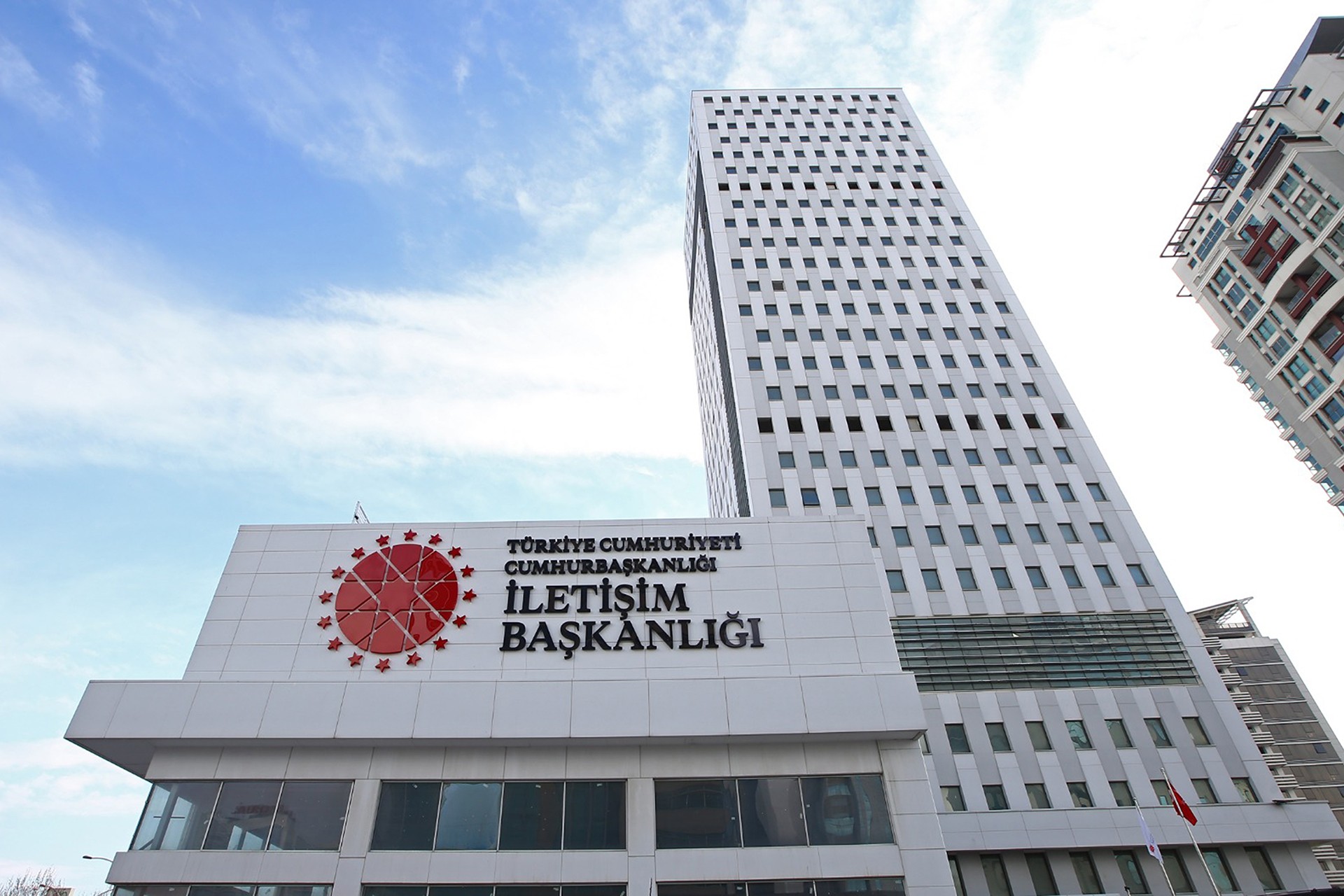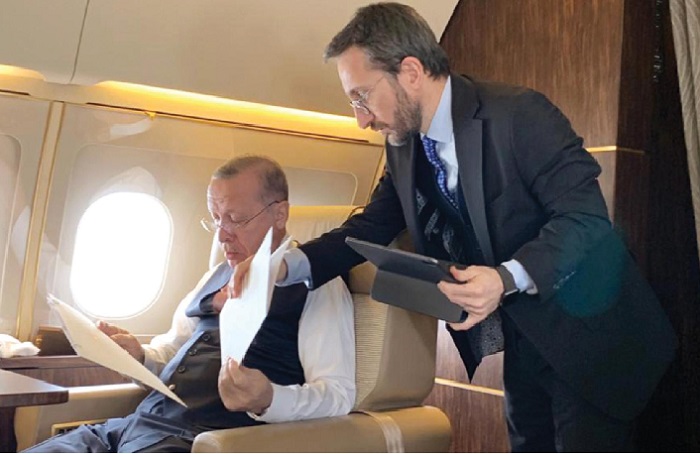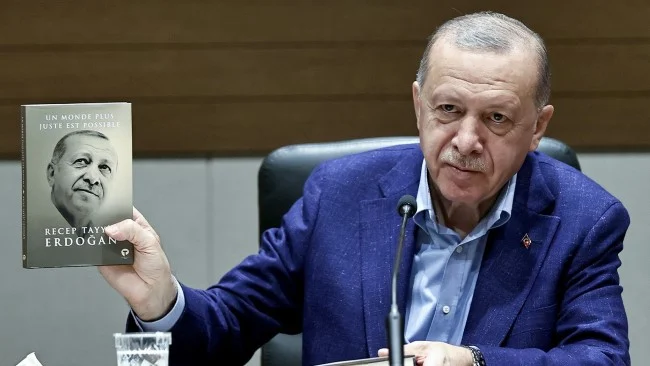Levent Kenez/Stockholm
Turkey’s Directorate of Communications, also known as President Recep Tayyip Erdogan’s propaganda office, is facing growing scrutiny over its rapidly increasing budget, expanding workforce and unclear activities as Turkey has been grappling with economic challenges due to high inflation, a significant depreciation of the lira and rising prices in recent years.
Vice President Cevdet Yılmaz, during a budget session in Parliament on November 29, told lawmakers that the main purpose of the directorate, established in 2018, is to promote Turkey’s perspectives internationally, manage public diplomacy, fight against misinformation and enhance communication between the government and citizens. However, critics from the opposition accuse the institution of functioning as a propaganda arm of the the ruling Justice and Development Party (AKP), rather than fulfilling its stated mission of combating disinformation and strengthening public communication.
Over the years, the directorate’s operations have expanded significantly. Its budget has ballooned from 344 million Turkish lira (TL; approximately $9.9 million) in 2019 to a proposed TL 6.1 billion ($175 million) for 2025, reflecting a nearly 16-fold increase in just six years. Similarly, its workforce has grown from 584 employees in 2018 to over 1,600 as of September 2024, necessitating additional allocations to expand its physical facilities.
The directorate’s financial expansion has been a focal point of criticism. Its initial budget for 2023 was set at TL 2.9 billion ($83.3 million), but its spending exceeded TL 3.2 billion ($92 million) by the end of the year. For 2024, the allocated budget is TL 4.1 billion ($117.8 million), with an anticipated increase to 6.1 billion lira ($175 million) for 2025, representing a 49 percent rise compared with the previous year. Opposition leaders warn that, as in past years, additional supplementary budgets will likely be requested, pushing total expenditures even higher.
Highlighting the scale of this increase, lawmakers pointed out that the directorate’s budget is now larger than that of 157 other public institutions, including the Presidency of Defense Industries, the Turkish Space Agency, the Turkish Statistical Institute and major universities, like Bogaziçi and Yıldız Teknik. “The Communications Directorate’s budget surpasses that of institutions essential for scientific, technological and defense advancements. This is a waste of public funds,” Erhan Usta, a deputy from the İYİ (Good) Party, said during the budgetary debate.
Critics have drawn sharp comparisons between the directorate’s budgetary growth and other key financial indicators in Turkey. For instance, the net minimum wage in 2020 was 2,324 lira ($66.8). If it had increased at the same rate as the Communications Directorate’s budget, the monthly wage would now exceed 36,000 lira ($1,034), far above the current level.
Minutes of the parliamentary meeting where the Directorate of Communications budget was discussed.
Similarly, opposition figures have contrasted the directorate’s allocation with other priorities. Deva (Democracy and Progress) Party Deputy Chair İdris Şahin noted that the directorate’s budget is nearly six times larger than that of the Presidency of Defense Industries, which received just TL 1.1 billion ($31.6 million). “This is a stark reminder of how the government prioritizes controlling narratives over national security,” he said.
In addition to its growing budget, the directorate has significantly increased the size of its workforce. Starting with 584 employees in 2018, the institution’s staff surged to 1,433 during the local election period in March 2019. After the elections, however, staffing dropped dramatically to 721 in 2020. By 2021, the number of employees began to rise again, reaching 824 by the end of the year and continuing to grow steadily in subsequent years: 943 in 2022, 1,404 in 2023 and over 1,600 by the first half of 2024.
The rapid growth strained the directorate’s physical infrastructure. Its current 25-story headquarters can no longer accommodate the workforce, prompting the allocation of TL 145 million ($4.2 million) to expand its facilities. Critics argue that such growth reflects inefficiency and political motivations, rather than actual operational needs.

The allocation of the directorate’s central building to the state was controversial. Originally constructed as a charity-funded dormitory for female university students in Ankara by businessman Akın İpek, who is an outspoken critic of the Erdogan government, the building was seized along with other assets after he became a target of the regime. Initially designated for use by the Ministry of Youth and Sports, the property was later transferred to the Ministry of Family and Social Policies before ultimately being handed over to the Presidency. The Presidency then allocated the building for use by the Directorate of Communications as its new service headquarters.
Meanwhile, Akın İpek, who currently lives in self-imposed exile in the UK, recently saw his 78-year-old mother arrested and imprisoned last month, marking another chapter in the ongoing crackdown on his family’s assets and influence. They were targeted over allegations of links to the faith-based Gülen movement, which has become a scapegoat for the government.
The opposition frequently accuses the directorate of serving as a political tool for the AKP rather than acting in the public’s interest. Lawmaker Usta has likened the institution’s operations to those of a propaganda ministry, questioning its legitimacy and necessity. The opposition frequently compares Fahrettin Altun, the head of the directorate, to historical figures infamous for controlling public opinion, such as Joseph Goebbels, the Nazi-era propaganda minister.
Altun, who regularly posts praise for Erdogan on his social media accounts, is also referred to as a “media commissar” in Turkey. Acting on behalf of his boss, he controls what is covered by newspapers and TV stations, even determining the questions that reporters from pro-government media outlets ask the president at his rare press conferences.
Yet these actions are not enough for Erdogan’s communications office, which frequently organizes panels and conferences to further enhance Erdogan’s image both domestically and internationally. Fahrettin Altun took the opportunity to promote Erdogan during the Türkiye Nation Branding Forum at Istanbul’s prestigious Maslak TIM Show Centre in 2022. There, he declared that Turkey’s largest and most powerful brand is Erdogan himself, adding that Erdogan’s brand is their guiding force.

As a side note, Altun’s loyalty to Erdogan is not just because he works under his command and is ideologically close to him. The financial return for his ties to Erdogan is also substantial for the Altun family. In addition to being communications director, he is a board member of the İstanbul Stock Exchange (Borsa Istanbul). He is also on the board of trustees of Turkey’s Manas University in Kyrgyzstan.
In a WhatsApp message shared with journalists close to him in 2020, Altun said he spent the income he received from the Borsa Istanbul on charity. Altun’s wife, an academic, is not outside this lucrative business. While she works at Marmara University, Fatmanur Altun is also a board member for Turkish Airlines, one of the country’s largest public companies, even though she has no experience running such a huge corporation. She is also a former president of the Foundation of Youth and Education in Turkey (TÜRGEV), which is in fact run by Erdogan’s family members as a cover to mask shady business deals.
During the session, lawmakers criticized Altun for not attending the parliamentary discussion on the budget, stating that his absence showed a disregard for the legislature.
The 2025 budget is expected to be approved by Parliament this week.












